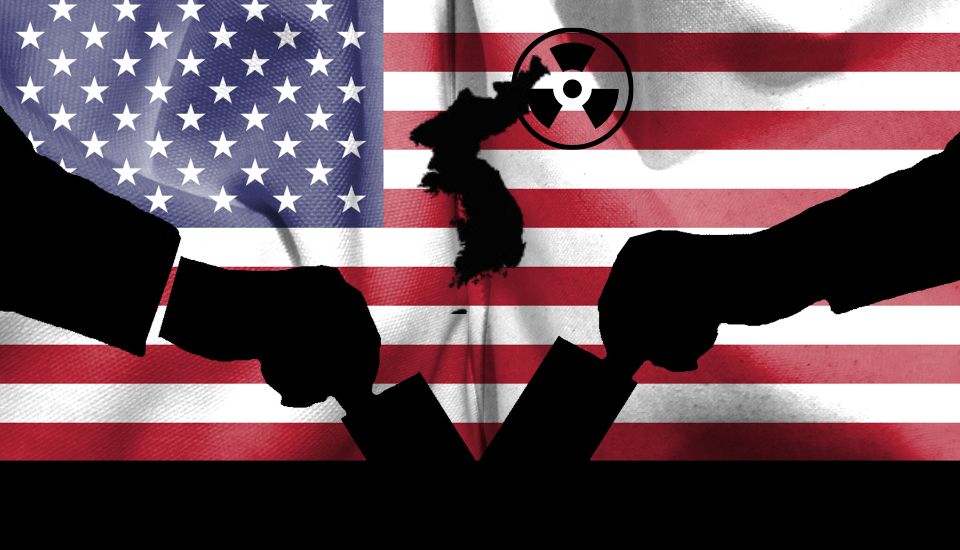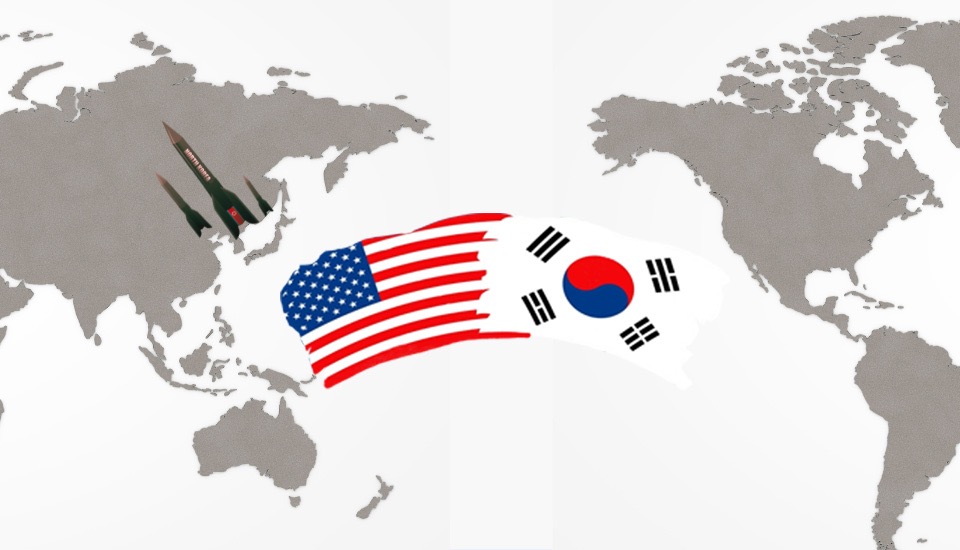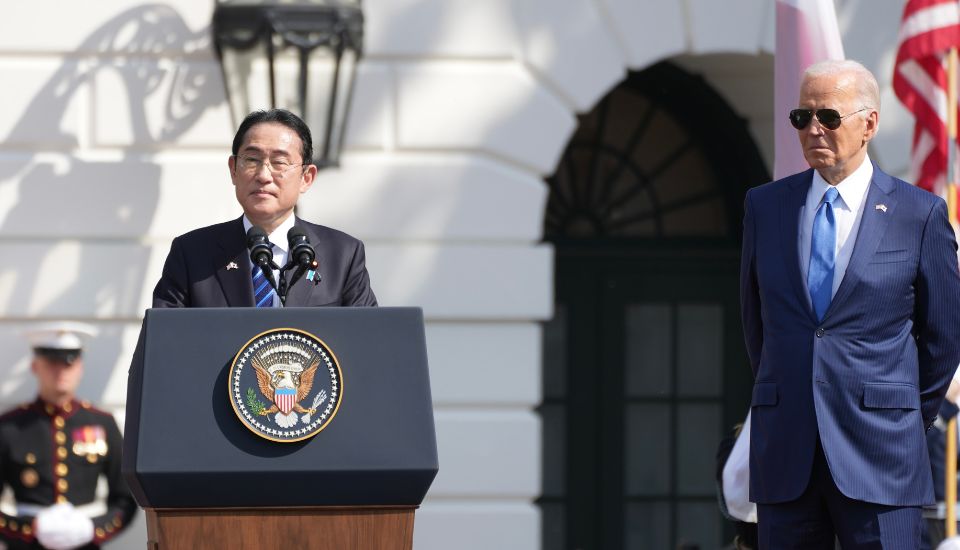
The Korean Peninsula as a Hotspot: Steering Stability Beyond the 2024 U.S. Election
Commentary | May 20, 2024
Seong-Ho SHEEN
Professor, Seoul National University
Sheen Seong-ho, Professor at Seoul National University, analyzes the future of the South Korea-U.S. alliance amid a likely “rematch” between President Biden and Trump in the November 2024 U.S. presidential election. Sheen emphasizes that, regardless of the election’s outcome, the U.S. will not prioritize denuclearization of the DPRK in its policy agenda. Therefore, Sheen urges the South Korean government to take the lead in managing inter-Korean relations and to develop comprehensive strategies to maintain stability. These strategies should also prepare for post-election nuclear diplomacy between the U.S. and China, as well as between the U.S. and DPRK.
|
Available Downloads |
I. U.S. Presidential Election: Navigating Chaos
The 2024 U.S. Presidential election is six months away. Donald Trump remains largely popular among conservative voters, fueling growing speculation about the possibility of his return to office. While recent surveys indicate Trump ahead of incumbent Biden in hypothetical electoral contests, it is premature to predict the winner.
There is still a long way to go until Election Day on November 5. The most pressing issue for Trump is his court trial schedule, which coincides with the election period. He is currently facing 91 felony charges across four criminal cases, including the weekly hush money trial. Trump claims that these trials are conspiracies to politically oppress him and would likely seek executive clemency for himself should he be elected president. However, given the tight election timeline, being entangled in critical criminal trials poses serious financial and logistical challenges. Furthermore, a guilty verdict could decisively damage his chances in the election.
President Biden also faces serious challenges that cast doubt on his re-election prospects. Public anxiety about his health is particularly high, given that he is the oldest candidate running for the presidency at age 81. Many question whether he can handle the demanding role of presidency for another four years. Another significant hurdle is the potential economic crisis. Since the COVID-19 pandemic, a majority of Americans have been grappling with high inflation and interest rates, feeling that their lives have become harder. With so much time and so many variables remaining, the outcome of the U.S. presidential election is far from certain.
This election is set to be a historic turning point for American democracy, featuring two oldest candidates—both former and current U.S. presidents. There is widespread concern that Trump's return could signal the beginning of an anti-democratic, authoritarian regime. Meanwhile, Trump’s loss could potentially provoke him to incite his supporters with claims of election fraud, possibly leading to, some says, a second "civil war" in U.S. history. This is why Biden views this election as a critical test for American democracy upon which the fate of the U.S. depends.
II. U.S. Presidential Election and the Future of the Korean Peninsula
As usual, the U.S. presidential election attracts global interest. Ian Bremmer, President of the Eurasia Group, describes the potential re-election of Trump as a “top global geopolitical risk.” In other words, a second Trump term may lead to even greater unpredictability among allies, including South Korea, than his first term (Moon 2024/1/19).
Indeed, the basic tenet of the ROK-U.S. alliance may be jeopardized if Trump returns to the White House. During his tenure, he already demanded that South Korea quintuple its defense burden sharing, hinting at the withdrawal of U.S. Forces Korea (USFK). When asked if he would withdraw troops from South Korea during an interview with Time Magazine on April 30 this year, Trump reiterated his stance, saying, "it is time that you [South Korea] step up and pay.” Meanwhile, Mark Esper, former U.S. Secretary of Defense during the Trump administration, testified in a 2022 interview with Korean media that Trump repeatedly called for the “complete withdrawal” of USFK.
Such a policy stance from Trump could severely undermine efforts towards denuclearization on the Korean Peninsula. April last year, President Yoon Suk Yeol and President Biden announced the Washington Declaration, committing to intensifying their joint efforts towards DPRK denuclearization negotiations and reinforcing U.S. extended deterrence. In this context, Trump’s approach to burden sharing could seriously erode Korean confidence in the alliance and extended deterrence, potentially fostering domestic support for South Korea's own nuclear armament due to growing distrust in the U.S. nuclear umbrella.
Surprisingly, some key advisor to Trump’s campaign is advocating for South Korea's nuclear armament. Elbridge Colby, the former U.S. Deputy Assistant Secretary of Defense for Strategy and Force Development during the Trump administration and a close aide to Trump on diplomacy, recently stated in an interview with Korean media that the U.S. will not be able to provide South Korea with a “viable defense umbrella,” and highlighted the need to consider South Korea (ROK) developing nuclear capabilities. He suggested that while U.S. Forces in Korea (USFK) would focus on countering China, South Korea should have the option to develop nuclear capabilities similar to those of the United Kingdom and France within NATO. He also expressed significant doubts about the feasibility of DPRK denuclearization, describing such negotiations as "impossibly far-fetched" (Kang, 4/25/2024). Essentially, Trump and his aides believe that U.S. efforts to prevent nuclear proliferation have failed due to DPRK's acquisition of nuclear capabilities.
Some speculate that if re-elected, Trump might recognize North Korea as a de facto nuclear state, prioritizing deterrence over denuclearization. Ian Bremmer suggests that Trump is likely to accept a nuclear freeze in return for lifting sanctions. In a Times Magazine interview, Trump expressed a strong rapport with Kim Jong Un, describing him as a visionary leader. If Trump returns to office, Kim might propose a significant "deal of the century," seeking relief from U.S. economic sanctions in exchange for stopping the development of ICBMs targeted at the U.S. mainland. In pursuit of a dramatic resolution to the DPRK nuclear issue, Trump might agree to a nuclear freeze.
This scenario could prompt stronger domestic calls within South Korea for developing an independent nuclear deterrent. Victor Cha, Senior Vice President for Asia and Korea Chair at the Center for Strategic and International Studies (CSIS), suggests that Trump’s re-election could intensify demands from South Korean leadership and the public to acquire nuclear capabilities. Trump indicated in 2019 that it might be advantageous for South Korea and Japan to develop their nuclear arsenals in response to North Korean and Chinese threats. Such a shift could critically weaken the Washington Declaration, which states that South Korea will refrain from nuclear development in return for enhanced U.S. extended deterrence.
II. Policy Recommendations for ROK
In 2024, North Korea labeled inter-Korean relations as "two hostile states in war," criticizing ROK-U.S. military drills as war preparations and threatening to deploy its full military force, including nuclear weapons, if conflict occurs. With the U.S. election underway, the Korean Peninsula emerges as a crucial hotspot. The South Korean government, with the Biden administration fully engaged in presidential election, assumes primary responsibility for inter-Korean relations, facing significant challenges.
Trump’s potential return to presidency might significantly escalate nuclear armament tensions on the Korean Peninsula. Such a scenario could trigger controversies around nuclear armament in South Korea and Japan, provoke a nuclear arms race in Northeast Asia, challenge the Nuclear Non-proliferation Treaty (NPT) regime, and weaken the ROK-U.S. alliance. Even if Biden is re-elected, immediate progress in DPRK denuclearization is unlikely, as the U.S. government grapples with resolving the Ukraine War and the conflict between Israel and Hamas.
Irrespective of the U.S. election outcome, North Korea is likely to leverage its enhanced nuclear capabilities to extract concessions in negotiations with the U.S., aiming to increase its strategic advantage. While a full-scale war is unlikely due to the superior military capabilities of the ROK-U.S. alliance, South Korea faces tough challenges in ensuringthe stabilization of the Korean Peninsula, maintaining peace, and pursuing denuclearization. Amid these challenges, South Korea must also prepare for upcoming U.S.-DPRK or U.S.-China nuclear diplomacy, aligning these efforts with the timing of the U.S. presidential election.
References
Cha, Victor. 2024. “Breaking Bad: South Korea’s Nuclear Option.” CSIS. April 29. https://www.csis.org/analysis/breaking-bad-south-koreas-nuclear-option
Kang, Tae-Hwa. 2024. “Trump’s Diplomatic Aide Urges South Korea to Consider Nuclear Options (in Korean).” Joongang Ilbo. April 25. https://www.joongang.co.kr/article/25244983 #home
Moon, Byung-Ki. 2024. “Domestic Nuclear Weapons Development Pressure Likely to Increase if Trump Wins Re-election (in Korean).” Dong-A Ilbo. January 19. https://www.donga.com/news/Inter/article/all/ 20240119/123125236/1
Seong, Yeon-cheol. 2019. “Trump Supports Allowing South Korea and Japan to Develop and Possess Nuclear Weapons (in Korean).” Hankyoreh. October 20. https://www.hani.co.kr/arti/international/ america/736992.html
■ Seong-Ho Sheen is the Professor of International Security and East Asia at the Graduate School of International Studies, Seoul National University.
■ Typeset by: Jisoo Park, Research Associate
For inquiries: 02 2277 1683 (ext. 208) | jspark@eai.or.kr
Security and External Relations

Navigating the Transformation of U.S. Alliance and the Denuclearization of North Korea
Won Gon PARK | 13.May.2024

Rethinking Nuclear Negotiations: The Impact of Diplomatic Phases on DPRK’s Strategic Behaviors
Sang Ki KIM | 29.April.2024

The Cornerstone: Strategic Lessons for ROK from the U.S.-Japan Summit
Yang Gyu KIM | 22.April.2024
LIST